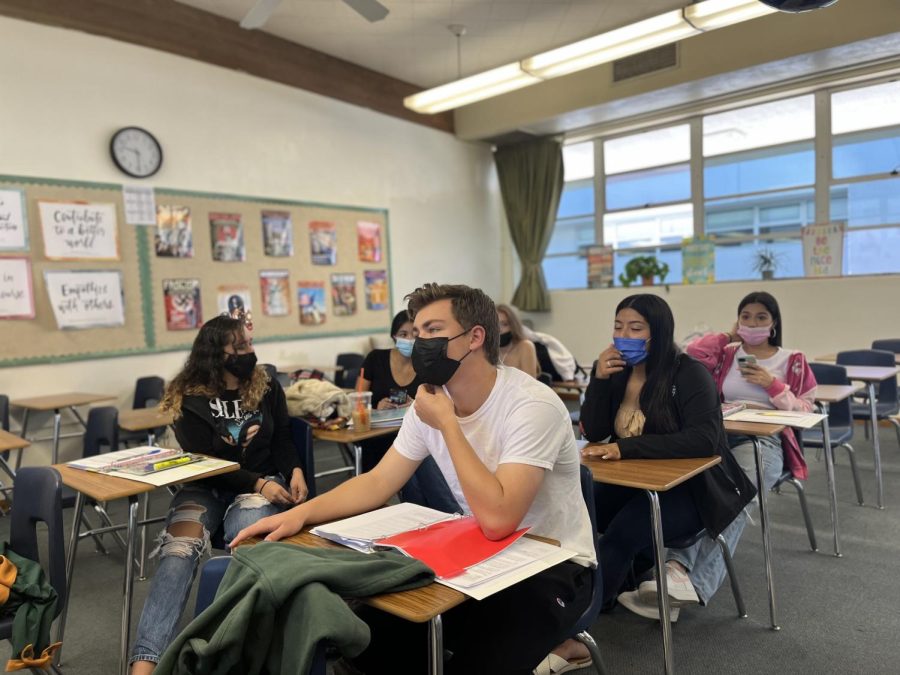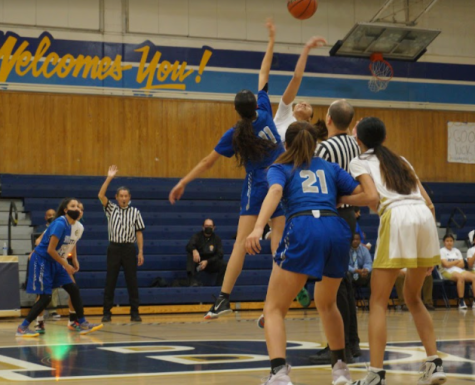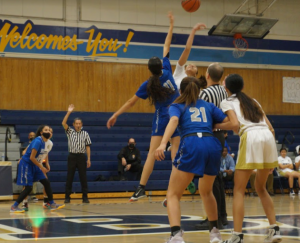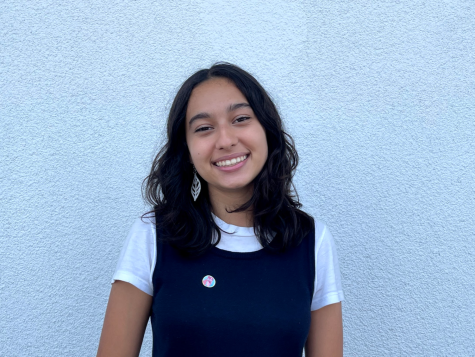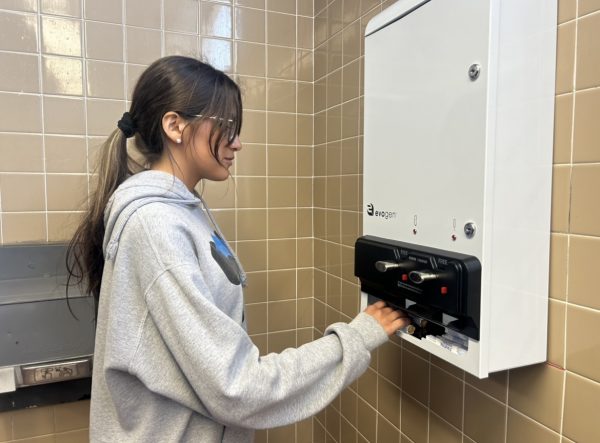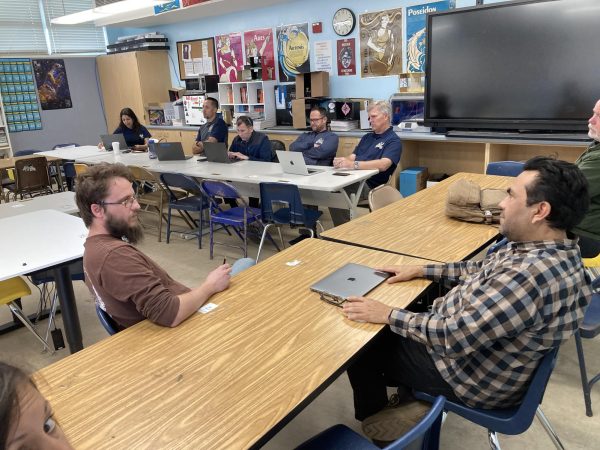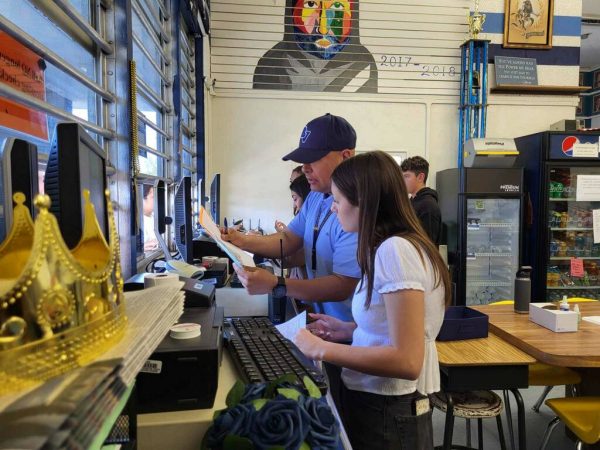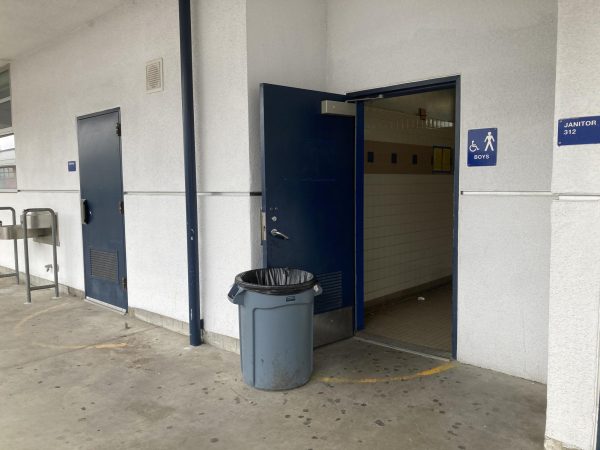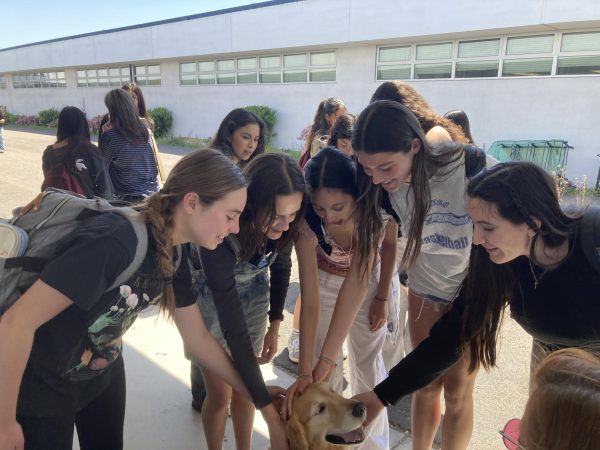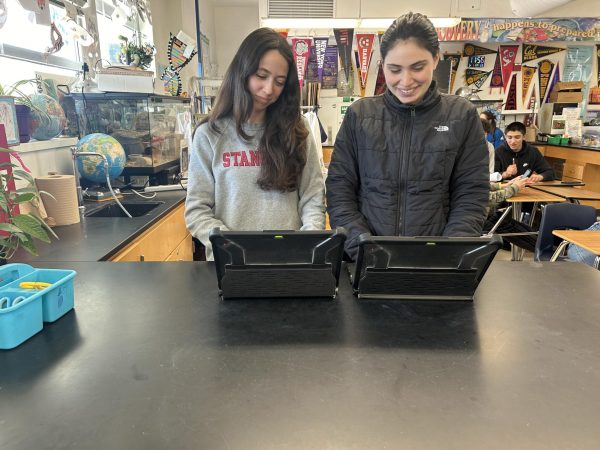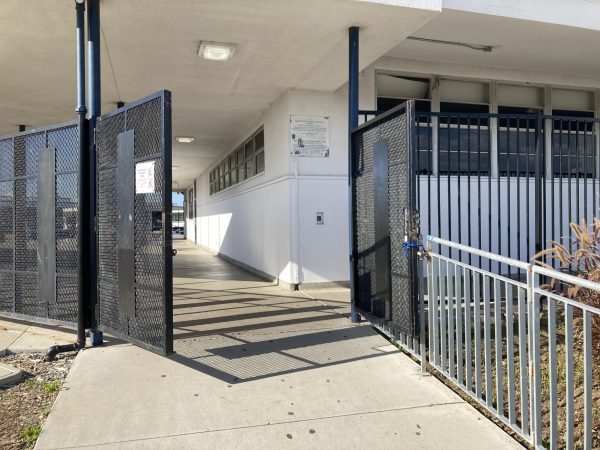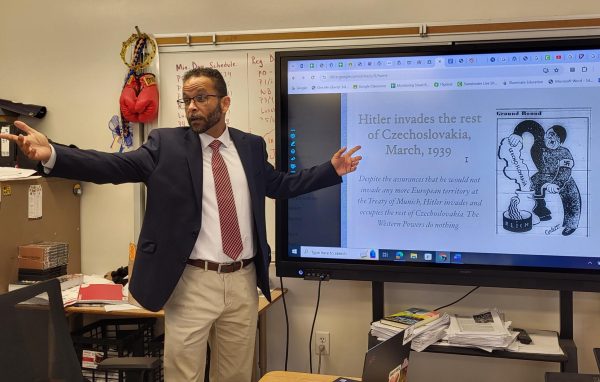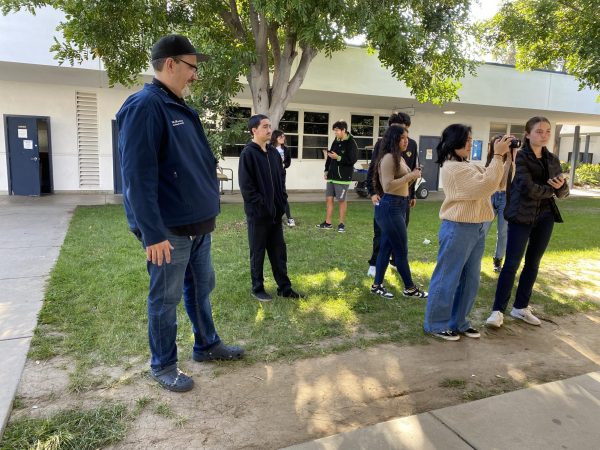Shortage in peer counselors prompts the removal of two support groups
Six students sit through training with Peer Counseling Program Coordinator Laura Lowery in her classroom. Entering the second semester of the 2021-2022 school year, a lack of peer counselors has prompted the removal of two support groups: Family and Emotion First-aid.
February 7, 2022
On Jan. 31, Bonita Vista High (BVH) students received an email notifying them of the upcoming support groups available during the second semester. The list included familiar groups from the last semester such as Academic Stress, LGBTQ+ and Empowering Young Women. However, the Family and Emotion First-aid support groups offered to students last semester were disbanded.
Coordinator for the Peer Counseling program Laura Lowery explained, the program has less peer counselors this semester. She attributed that decrease to seniors needing to drop the class in order to take another class to fulfill their graduation requirements.
“I would love to have more peer counselors taking the class and running support groups. The reason why it’s been difficult [to get more peer counselors] is [because] it’s an elective course, so their required courses take priority,” Lowery said.
Lowery added that Peer Counseling was largely impacted by distance learning because many incoming freshmen and sophomores had not heard of the program. The program is still working to rebuild their reputation on campus. Another challenge in maintaining the support groups offered to students is not having enough teachers to facilitate groups.
“[The support groups] give teachers a new perspective and understanding of what students go through,” Lowery said. “After I facilitate a group I’m reminded of all the different burdens students carry around with them every day, all of their different struggles and [I’m reminded] to be more human with them.”
International Baccalaureate (IB) Diploma Program Coordinator Jared Phelps was the faculty facilitator for the Family support group. He also has been the Academic Stress faculty facilitator for three years. Phelps believed that his limited availability this semester may have contributed to the dissolvement of the Family support group.
Talking is more therapeutic than we realize. Just putting it into words and communicating with another human being is simple, but it’s very helpful.
— Peer Counseling Program Coordinator Laura Lowery
“It was good to hear students ready to be open with other people and share that struggle and pain, but encourage one another through it,” Phelps said. “I was pleased to be a part of both groups last semester, and I’m pleased to continue to be a part of one of them this semester.”
From Lowery’s experience she has seen these support groups help students feel they are not alone in their hardships. She explained that the support groups give students a space where they can simply talk.
“Talking is more therapeutic than we realize. Just putting it into words and communicating with another human being is simple, but it’s very helpful,” Lowery said. “[Support groups] are a place to let it out instead of carrying that with you every day.”
Senior Liliana Carranza has been in the Family support group since her freshman year. She was upset the group was no longer active—a shared feeling among others in that support group. Carranza felt a great sense of community within the support group and appreciated a space to listen to others and be listened to.
“I became really close with everyone in it [Family support group], it made me feel not alone,” Carranza said.
Lowery emphasized that even with the removal of these support groups, there are still ways students can get help with the issues they are struggling with. For example, students can book an appointment to talk to a peer counselor one-on-one. Additionally, while not having a strong reaction to the removal of the Family support group, Phelps recognized the importance of having support groups.
“I am a firm believer in the idea that anyone and everyone can benefit from therapy. But therapy is expensive. So having access to a service like this at the school where students get support from their peers, peer counselors and faculty members, is a valuable thing for everyone,” Phelps said.
Lowery, Phelps and Carranza hope that the removed support groups will make a comeback in the near future. In the meantime, Lowery encourages anyone who is interested in helping others to become peer counselors. Additionally, Phelps advises more students to pursue the support groups offered on campus.
“I don’t believe there is anyone who would not benefit from the ability to talk to others about things they’re dealing with. Being in a support group is not a sign of weakness. It’s a sign of recognition that we are dealing with something we want the opportunity to grow through. There’s no reasonable way that can be construed to be a bad thing,” Phelps said. “I hope more people recognize that and latch on to that idea and participate in programs like this.”

